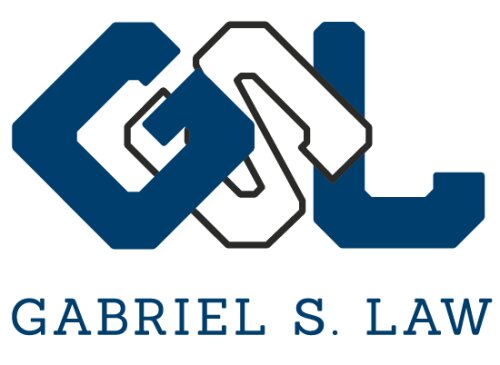Best Bankruptcy Lawyers in Illinois
Share your needs with us, get contacted by law firms.
Free. Takes 2 min.
Or refine your search by selecting a city:
List of the best lawyers in Illinois, United States
About Bankruptcy Law in Illinois, United States
Bankruptcy is a legal process that provides relief to individuals and businesses struggling with overwhelming debt. In Illinois, as in the rest of the United States, bankruptcy is governed primarily by federal law under the United States Bankruptcy Code. However, certain aspects of the process, such as property exemptions, are determined by Illinois state law. Bankruptcy can help eligible debtors eliminate or restructure their debts, offering a fresh financial start. There are different types of bankruptcy, with Chapter 7 and Chapter 13 being the most common for individuals in Illinois.
Why You May Need a Lawyer
Seeking bankruptcy protection is a significant decision that can have long-term financial consequences. While it is possible to file without legal assistance, the process can be complex and requires a thorough understanding of federal and state laws, as well as strict adherence to court procedures and deadlines. Common situations where people seek a lawyer's help include:
- Uncertainty about which bankruptcy chapter is right for their situation
- Complicated financial situations, such as high assets, multiple sources of income, or recent large transactions
- Facing aggressive collection actions, wage garnishments, or foreclosure proceedings
- Understanding possible exemptions and how to protect personal property
- Disputes with creditors or issues with dischargeability of certain debts
- Needing guidance through bankruptcy court procedures and required paperwork
- Concerns about the impact of bankruptcy on co-signers, spouses, or business partners
Local Laws Overview
Bankruptcy law in Illinois follows the federal rules set by the Bankruptcy Code, but Illinois residents must also follow certain state-specific regulations, especially regarding exemptions. Exemptions determine what property you can keep through the bankruptcy process. In Illinois, you cannot use federal exemptions - you must use the state's specific list. Key aspects of Illinois bankruptcy laws include:
- Illinois Exemptions: The Illinois Personal Property Exemption allows for exemptions on a limited amount of equity in your home, personal belongings, retirement accounts, and certain other assets.
- Homestead Exemption: Allows up to a specific dollar amount of equity in your primary residence to be protected from creditors.
- Wild Card Exemption: There is a modest exemption amount that can be applied to any property of your choice.
- Debt Limits: Some bankruptcy chapters, such as Chapter 13, have debt limits that could affect eligibility.
- Means Test: Eligibility for Chapter 7 bankruptcy requires passing a means test based on your income and expenses relative to the state median.
- Mandatory Credit Counseling: All filers must complete a credit counseling session from an approved agency before their case is filed.
- Bankruptcy Court Locations: Illinois is divided into three federal districts (Northern, Central, and Southern), each with its own bankruptcy court.
Frequently Asked Questions
What is the difference between Chapter 7 and Chapter 13 bankruptcy in Illinois?
Chapter 7 bankruptcy, also known as liquidation bankruptcy, allows qualifying individuals to discharge most unsecured debts after non-exempt assets are sold to pay creditors. Chapter 13 bankruptcy is a reorganization plan where debtors keep their property and repay creditors over three to five years, based on an approved payment plan.
Who is eligible to file for bankruptcy in Illinois?
Eligibility depends on factors such as your income, the type of bankruptcy you wish to file, and whether you have previously filed for bankruptcy. Chapter 7 filers must pass a means test comparing their income to the median income in Illinois. Chapter 13 filers must have a regular income and debts within certain limits.
Will I lose my house or car if I file for bankruptcy in Illinois?
Whether you can keep your house or car depends on your equity in the property and Illinois exemption laws. If your equity is within exemption limits and you continue making payments, you may be able to keep your home or vehicle.
What debts are not dischargeable in bankruptcy?
Certain debts typically cannot be discharged, including most student loans, recent taxes, alimony, child support, some fines or penalties, and debts incurred through fraud.
How will filing for bankruptcy affect my credit?
A bankruptcy filing will have a negative impact on your credit score and remain on your credit report for seven to ten years, depending on the type. However, many people are able to begin rebuilding credit soon after their case is completed.
Can bankruptcy stop foreclosure or repossession in Illinois?
Filing for bankruptcy can provide temporary relief from foreclosure or repossession through an automatic stay. Chapter 13 can potentially allow you to catch up on overdue mortgage or car payments through a repayment plan.
How much does it cost to file for bankruptcy in Illinois?
There are court filing fees for both Chapter 7 and Chapter 13 cases, plus fees for mandatory credit counseling. If you hire an attorney, legal fees are an additional cost but may be paid over time in a Chapter 13 case.
Do both spouses need to file for bankruptcy together?
Married couples in Illinois are not required to file bankruptcy jointly. Each spouse can file separately or together, depending on the ownership of debts and assets and other individual circumstances.
What is the means test and how does it apply in Illinois?
The means test is a calculation used to determine eligibility for Chapter 7 bankruptcy. It compares your average monthly income over the previous six months to Illinois median income levels, deducting allowable expenses.
Can creditors continue to contact me after I file for bankruptcy in Illinois?
Once you file bankruptcy, an automatic stay goes into effect, which prohibits most creditors from contacting you or continuing collection efforts, including lawsuits, wage garnishments, and harassing phone calls.
Additional Resources
Individuals seeking more information about bankruptcy in Illinois may find these resources helpful:
- United States Bankruptcy Court for the Northern, Central, and Southern Districts of Illinois
- Illinois Attorney General’s Office - Consumer Protection Division
- Local Legal Aid Organizations and Pro Bono Legal Services
- National Foundation for Credit Counseling
- Illinois Department of Financial and Professional Regulation
- American Bankruptcy Institute
Next Steps
If you are considering bankruptcy in Illinois, here is how to get started:
- Gather detailed information about your debts, assets, income, and expenses.
- Consult with a qualified bankruptcy attorney to discuss your options and receive advice tailored to your specific situation.
- Complete the mandatory credit counseling session with an approved agency.
- Evaluate which type of bankruptcy may be most appropriate for your needs, with your attorney's assistance.
- Prepare and file the required bankruptcy documentation with the appropriate Illinois bankruptcy court.
- Attend the meeting of creditors and any required court hearings.
- Follow up with your attorney on any post-filing obligations or impacts, such as credit rebuilding strategies.
Taking these steps with the support of an experienced legal professional can significantly improve your outcomes and provide the guidance you need during a challenging time.
Lawzana helps you find the best lawyers and law firms in Illinois through a curated and pre-screened list of qualified legal professionals. Our platform offers rankings and detailed profiles of attorneys and law firms, allowing you to compare based on practice areas, including Bankruptcy, experience, and client feedback.
Each profile includes a description of the firm's areas of practice, client reviews, team members and partners, year of establishment, spoken languages, office locations, contact information, social media presence, and any published articles or resources. Most firms on our platform speak English and are experienced in both local and international legal matters.
Get a quote from top-rated law firms in Illinois, United States — quickly, securely, and without unnecessary hassle.
Disclaimer:
The information provided on this page is for general informational purposes only and does not constitute legal advice. While we strive to ensure the accuracy and relevance of the content, legal information may change over time, and interpretations of the law can vary. You should always consult with a qualified legal professional for advice specific to your situation.
We disclaim all liability for actions taken or not taken based on the content of this page. If you believe any information is incorrect or outdated, please contact us, and we will review and update it where appropriate.
Browse bankruptcy law firms by city in Illinois
Refine your search by selecting a city.













